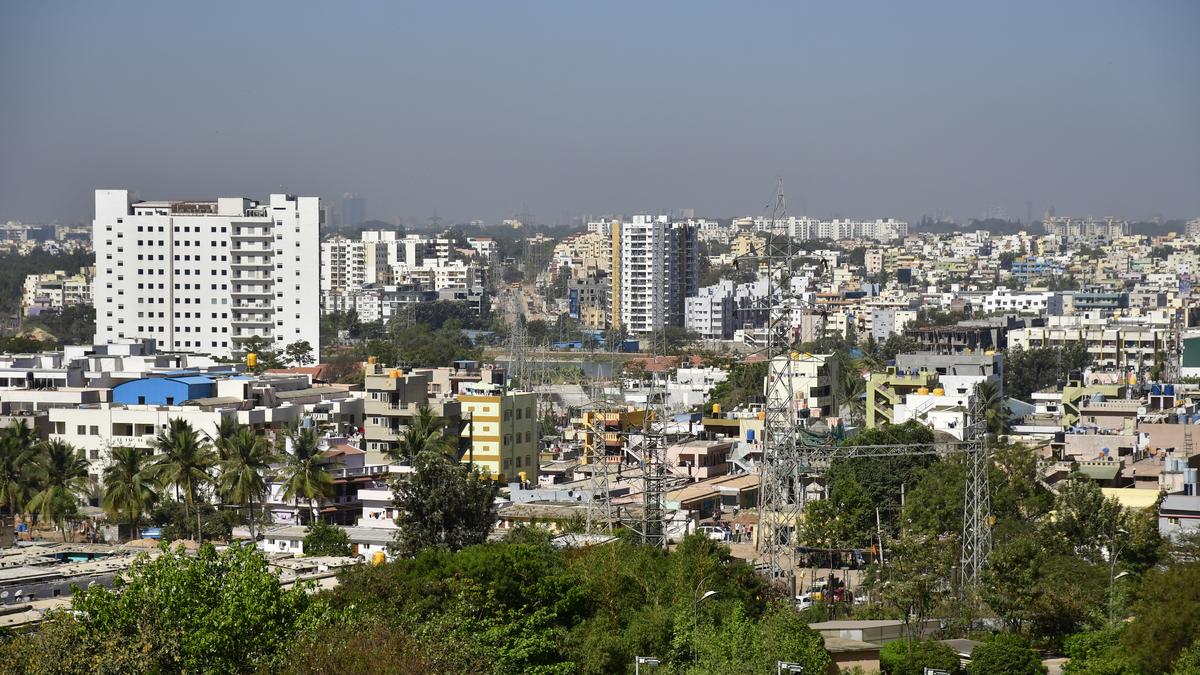
Contradicting Bill tabled by the govt., House Panel recommends full autonomy to corporations to collect taxes
The Hindu
Contradicting the provisions of the Greater Bengaluru Governance Bill, 2024, tabled by the State government in the Karnataka Legislative Assembly in July 2024, the Joint Legislature Committee that examined the Bill and submitted its report on Monday, has proposed that all the corporations carved out of the existing civic body be given full autonomy in tax collection.
Contradicting the provisions of the Greater Bengaluru Governance Bill, 2024, tabled by the State government in the Karnataka Legislative Assembly in July 2024, the Joint Legislature Committee that examined the Bill and submitted its report on Monday, has proposed that all the corporations carved out of the existing civic body be given full autonomy in tax collection. Instead, it has recommended carving out multiple corporations based on population density and revenue generation potential to ensure revenue parity.
The Bill had proposed that Greater Bengaluru Authority (GBA), chaired by the Chief Minister, at the pan city level, collect all taxes and redistribute it among multiple corporations to ensure parity. This was contrary to the recommendations of the BBMP Restructuring Committee, formed to restructure the city’s governance. Now, the Joint Legislature Committee has gone back to the recommendation made by the Restructuring Committee.
House panel chairman MLA Rizwan Arshad, speaking to The Hindu, stated that the committee had made several recommendations to promote equity among corporations and address revenue disparities.
As a primary measure, the government must consider population density and revenue generation capacity when carving out new corporations. The State is recommended to ensure a balanced distribution of revenue-generating areas. For instance, high-revenue pockets in Mahadevapura zone, currently the highest tax-contributing area, may be distributed among multiple corporations rather than confined to one.
Additionally, Mr. Rizwan emphasised the need to integrate around 25 panchayats, presently outside BBMP limits, into the corporations during restructuring. “We have identified panchayats that have undergone rapid urbanisation. Some of these areas have residential villas priced between ₹5 crore and ₹10 crore, demonstrating significant revenue potential. Their inclusion will help offset revenue shortfalls in corporations receiving fewer high-revenue pockets,” he explained.
The panel also recommended incentivising wards to enhance revenue collection. If a ward increases its tax collection through arrears recovery, assessing under-taxed properties, or expanding the tax net, a portion of the additional revenue can be allocated for local development. For example, if a ward increases tax collection by ₹100, it may be allowed to utilise ₹10 or ₹20 for its own improvements.
Despite these measures, if any corporation faces a revenue deficit, the committee suggests that the State provide financial assistance through grants based on necessity. However, such corporations must submit annual plans to improve tax collection. Additionally, corporations will have autonomy to develop their own revenue-boosting programmes.

At the all fishermen associations and fishing workers meeting organised at Thangachimadam near here on Tuesday, a unanimous decision to launch an indefinite hunger strike on February 28 was taken. Jesu Raja, leader of All Mechanised Boats Fishermen Association, said the hunger strike that would start on Friday would be continued till a positive announcement came from the Union government regarding release of the arrested Tamil fishermen by the Sri Lankan government.












